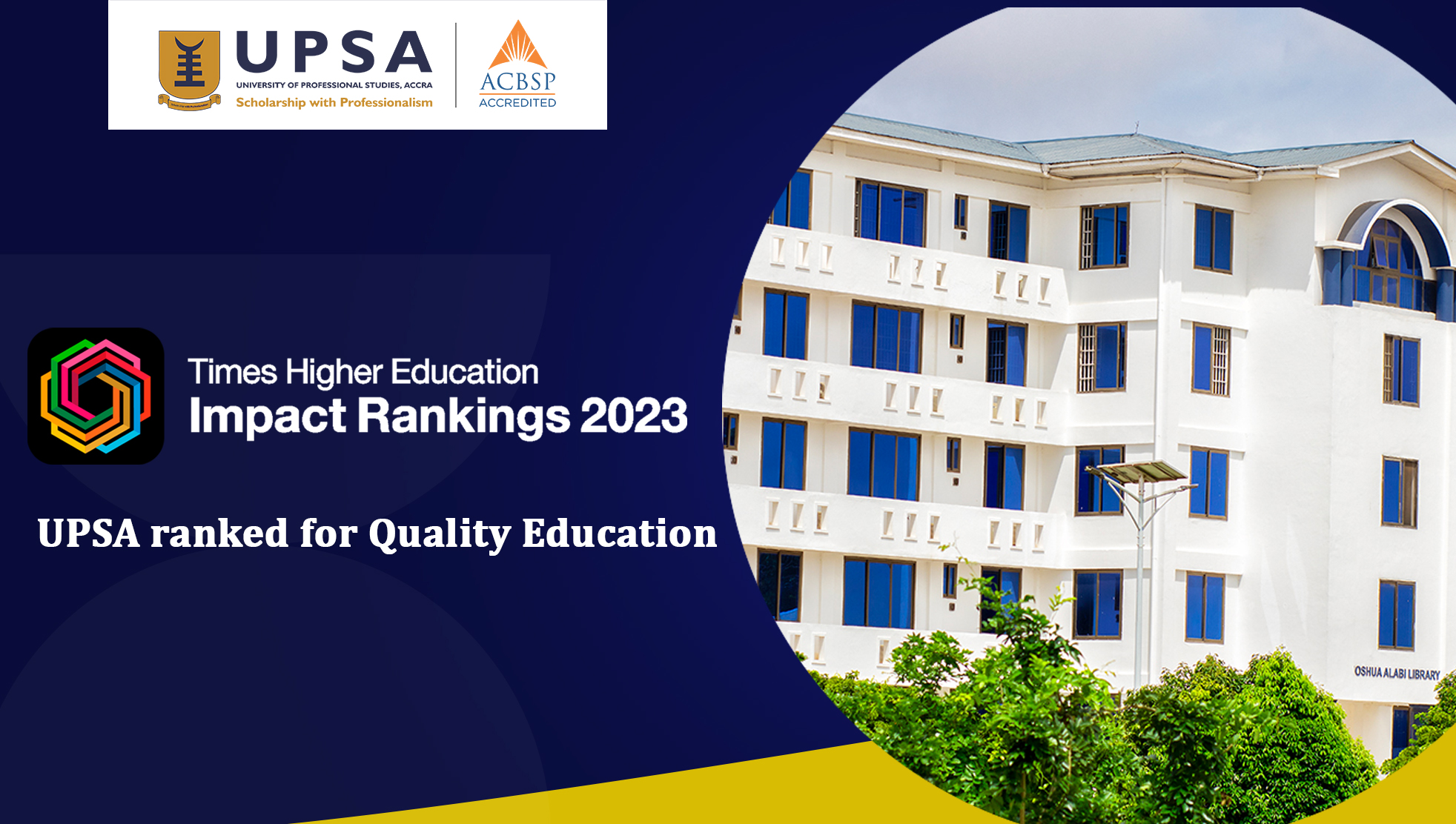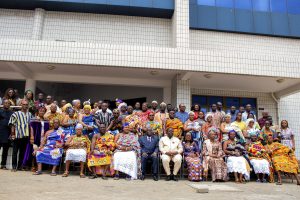The University of Professional Studies, Accra (UPSA) has been ranked high in quality education according to the 2023 Times Higher Education Impact Rankings, a global ranking that measures universities against the United Nations’ Sustainable Development Goals (SDGs).
UPSA’s outstanding performance in addressing SDGs 4, 8 and 16 has propelled it to the forefront of higher education institutions dedicated to creating a positive impact on society.
Retaining its status as one of the top universities in Ghana, UPSA ranked joint-fourth locally alongside the University of Health and Allied Science and 801–1000th globally.
UPSA demonstrated its unwavering commitment to SDG 4, which focuses on quality education, through a range of initiatives, including fostering accessible education for students from marginalised communities, promoting lifelong learning opportunities, and promoting inclusive education.
In SDG 8, which emphasises decent work and economic growth, UPSA proved its ability to facilitate economic prosperity and social progress through the introduction and promotion of entrepreneurship among educand as well as offering job creation support and upholding best employment practises.
Furthermore, UPSA’s remarkable achievement in SDG 16, which centres around promoting peace, justice and strong institutions, and the university’s active role as an advisor for government and policies on academic freedom did not go unnoticed.
The University also scored fairly well in SGD 5 (gender equality) and SDG 17 (partnership for goals).
The Times Higher Education Impact Rankings are the only global rankings that assess how higher education institutions around the world are committing to the 17 United Nations Sustainable Development Goals (SDGs) or working to tackle global sustainable issues.
More than 1,590 universities from 112 countries/regions were assessed in this year’s edition using carefully calibrated metrics across four broad areas: research, stewardship, outreach, and teaching.



